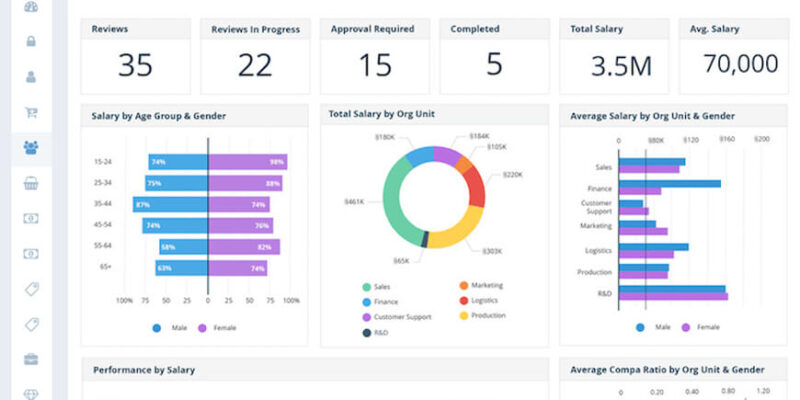
In recent years, the landscape of work has undergone a profound transformation, accelerated significantly by global events that necessitated widespread remote work adoption. As organizations continue to embrace the benefits of remote work and distributed teams, the role of Human Resources (HR) software has become increasingly crucial. HR software not only supports traditional HR functions but also plays a pivotal role in facilitating remote work and fostering collaboration among geographically dispersed teams. This article explores how HR software enables seamless remote work and enhances collaboration, thereby driving organizational success in the modern era.
The Evolution of Remote Work and Distributed Teams
Remote work is no longer a mere trend but a fundamental shift in how businesses operate. It allows organizations to tap into a global talent pool, reduce overhead costs, and offer employees greater flexibility. According to a report by FlexJobs, remote work has grown by 91% over the last decade, indicating a significant paradigm shift in work culture.
Distributed teams, spread across different locations and time zones, bring diversity in perspectives and skill sets but also pose unique challenges. Effective communication, seamless collaboration, and maintaining a cohesive company culture are critical factors in ensuring the success of distributed teams.
Role of HR Software in Facilitating Remote Work
- Recruitment and Onboarding: HR software streamlines the recruitment process by enabling virtual job postings, applicant tracking, and video interviews. This ensures that organizations can attract and onboard top talent globally without geographical constraints. Automated onboarding processes help new hires integrate smoothly into the company culture and understand their roles and responsibilities.
- Employee Engagement and Communication: Maintaining high employee engagement levels in a remote setting is vital for productivity and morale. HR software platforms often include tools for employee feedback, surveys, and recognition programs. Additionally, integrated communication features such as instant messaging, virtual meetings, and discussion forums foster real-time collaboration and a sense of community among remote workers.
- Performance Management: Traditional performance management practices centered around in-person evaluations may not be suitable for remote teams. HR software offers performance tracking tools that enable managers to set goals, provide continuous feedback, and conduct performance reviews remotely. This ensures transparency and accountability, driving performance even in a distributed environment.
- Learning and Development: Continuous learning is essential for remote employees to stay updated with industry trends and sharpen their skills. HR software provides learning management systems (LMS) that offer online courses, webinars, and certifications. Personalized learning paths cater to individual development needs, enhancing employee growth and retention.
- Data Security and Compliance: Managing sensitive employee data and ensuring compliance with data protection regulations are paramount in remote work scenarios. HR software solutions offer robust security measures such as data encryption, access controls, and secure cloud storage. Automated compliance tracking helps HR teams stay updated with legal requirements across different jurisdictions.
Enhancing Collaboration with HR Software
- Project and Task Management: Effective collaboration among distributed teams requires centralized project management tools. HR software integrates project tracking, task assignment, and milestone tracking functionalities. Team members can update progress in real-time, ensuring alignment and accountability across different time zones.
- Document and Knowledge Sharing: Cloud-based HR software facilitates seamless document sharing and collaboration on files. Version control features ensure that team members are working on the latest documents, while shared repositories centralize information storage. This reduces reliance on email attachments and enables efficient knowledge sharing among remote teams.
- Virtual Team Building: Building a strong team culture is challenging in remote settings but crucial for team cohesion. HR software platforms offer virtual team-building activities such as online social events, virtual coffee chats, and wellness challenges. These initiatives promote camaraderie and alleviate feelings of isolation among remote employees.
- Cross-functional Collaboration: Silos can hinder productivity in distributed teams. HR software breaks down barriers by facilitating cross-functional collaboration through integrated workflows and communication channels. Collaboration tools like shared calendars and integrated email platforms ensure that teams can coordinate effectively on joint projects regardless of location.
Overcoming Challenges and Maximizing Benefits
While HR software offers numerous advantages for remote work and collaboration, organizations must address challenges to maximize its benefits:
- Technological Accessibility: Ensure that all team members have access to reliable internet connections and necessary hardware to utilize HR software effectively.
- Training and Support: Provide comprehensive training and ongoing support to employees on using HR software tools to optimize their remote work experience.
- Cultural Adaptation: Foster a culture of trust, transparency, and inclusivity to overcome cultural barriers and promote collaboration among diverse remote teams.
Conclusion
In conclusion, HR software serves as a cornerstone for organizations navigating the complexities of remote work and distributed teams. By leveraging technology to streamline HR processes, enhance communication, and foster collaboration, businesses can empower their remote workforce to achieve greater productivity and innovation. As remote work continues to evolve, the role of HR software in driving organizational success will only become more pronounced, shaping the future of work in a globally connected world.







